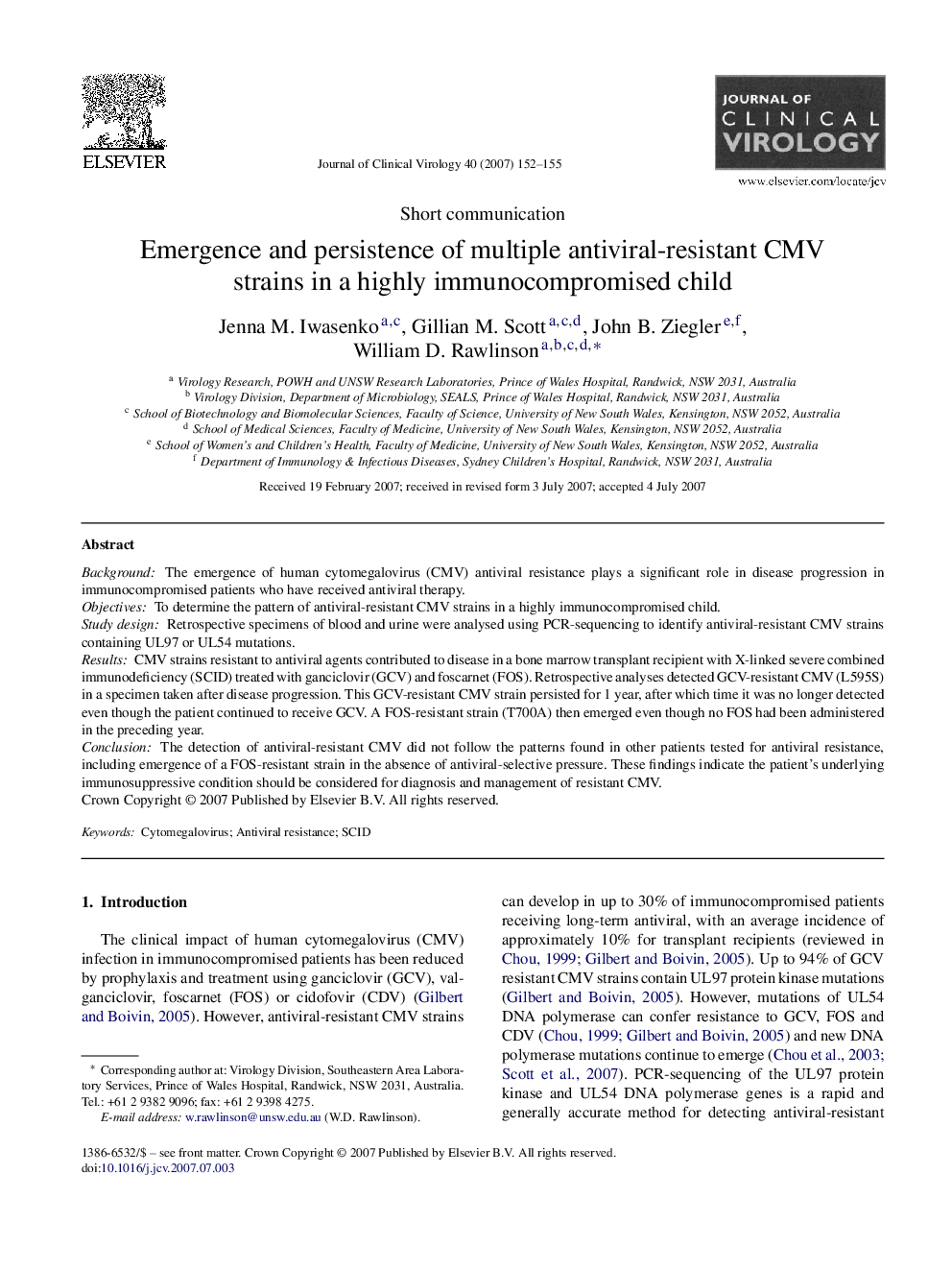| Article ID | Journal | Published Year | Pages | File Type |
|---|---|---|---|---|
| 3369889 | Journal of Clinical Virology | 2007 | 4 Pages |
BackgroundThe emergence of human cytomegalovirus (CMV) antiviral resistance plays a significant role in disease progression in immunocompromised patients who have received antiviral therapy.ObjectivesTo determine the pattern of antiviral-resistant CMV strains in a highly immunocompromised child.Study designRetrospective specimens of blood and urine were analysed using PCR-sequencing to identify antiviral-resistant CMV strains containing UL97 or UL54 mutations.ResultsCMV strains resistant to antiviral agents contributed to disease in a bone marrow transplant recipient with X-linked severe combined immunodeficiency (SCID) treated with ganciclovir (GCV) and foscarnet (FOS). Retrospective analyses detected GCV-resistant CMV (L595S) in a specimen taken after disease progression. This GCV-resistant CMV strain persisted for 1 year, after which time it was no longer detected even though the patient continued to receive GCV. A FOS-resistant strain (T700A) then emerged even though no FOS had been administered in the preceding year.ConclusionThe detection of antiviral-resistant CMV did not follow the patterns found in other patients tested for antiviral resistance, including emergence of a FOS-resistant strain in the absence of antiviral-selective pressure. These findings indicate the patient's underlying immunosuppressive condition should be considered for diagnosis and management of resistant CMV.
